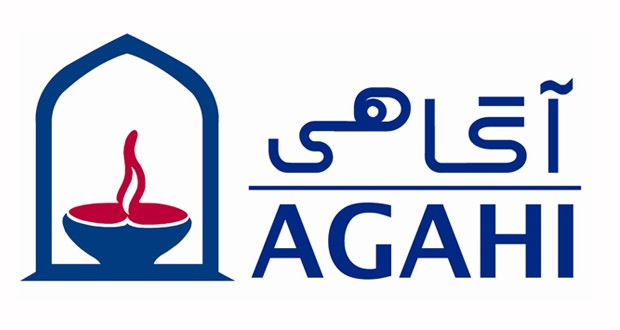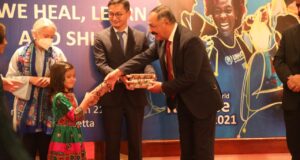PESHAWAR: AGAHI, the leading institution on Futures Thinking in the country and the country partner of the Millennium-Project, a Global Futures Studies & Research participatory think-tank signed a memorandum of understanding with University of Peshawar to strengthen futures research and development in Pakistan. The joint initiative will aim to establish futures research, focusing on trends, challenges and opportunities for the city of Peshawar and surrounding areas. The initiative will check and test assumptions about Pakistan’s futures among the leadership and wider society, and explore perceptions to identify future risks. The purpose of this partnership is to produce futures insights – to advocate better decision-making, improve quality of life and increase economic opportunities in the region. The MoU signing ceremony was held at University of Peshawar, Khyber Pakhtunkhwa here today.
Speaking on the occasion Dr. Muhammad Asif Khan, Vice Chancellor of the University of Peshawar said, “The memorandum of understanding we sign today is a new beginning towards a holistic approach. We believe to be in a long-term relationship to address shared concerns and to identify the challenges and opportunities for the society”.
Puruesh Chaudhary, Founder and President AGAHI said, “We can always improve the policy implementation through alternative futures thinking and anticipation in order to address different challenges and futures perspectives”.
Since 2019, AGAHI has taken a leap forward, training more than 200 faculty members from different universities in Pakistan; assisting them to understand and effective use of Futures research, improving the wellbeing of the people of Pakistan The objective of the trainings is to help academics, understand Foresight Lab`s research and its utility through Realtime Delphi (RTD) technique and concept of RTD tool, consideration and usage of the State of Future Index (SOFI) variables.
AGAHI’s Foresight Lab is to create and foster an ecology of foresight perspectives in Pakistan and enable decision-makers to opt for appropriate policy choices and establish strategic narrative in support for the stakeholders. The Purpose of the Lab is to apply data-driven foresight research methods and techniques that pivots on improving the well-being of the people of Pakistan.
AGAHI has trained more than 200 faculty members from different universities of Pakistan including Institute of Space Technology (Islamabad), Quaid-i-Azam University (Islamabad), COMSATS University (Islamabad), University of Lahore (Lahore), Institute of Management Sciences (Peshawar), Institute of Business Administration (Karachi), Sanjan Nagar Institute of Philosophy and Arts (Lahore), Balochistan University of Information Technology, Engineering, and Management Sciences (Quetta), University of Balochistan (Quetta), National University of Modern Languages (Islamabad), Karakoram International University(Gilgit-Baltistan), and University of Baltistan, skardu. AGAHI is building an academic cohort of scholars specializing on Futures Thinking to resolve the challenges of the futures with the policy options of today.
In addition to Dr. Muhammad Asif Khan (Vice-Chancellor, University of Peshawar) and Puruesh Chaudhary (Founder and President, AGAHI) participants of the meeting included, Dr. Zia Obaid (Assistant Professor, Institute of Management Sciences), Engr. Athar Hussain Bangash, (Additional Director Planning & Development), Amir Jahangir (Executive Chairman, AGAHI), Sami Qureshi (Manager Finance, AGAHI), Maria Khan (Research Communication Officer, AGAHI) and Rubia Javeed (Chief Coordinator, AGAHI).
Foresight Lab is an open, systematic, participatory process that supports research design and formulation of policies with medium to long-term perspective. It is an element of strategic thinking, which informs policymaking and enables strategic planning and action into implementation. Foresight Lab is a discourse that creates futures by examining the past trends generating collective insight without prejudicing the autonomy of individuals or organizations participating.
Web Desk
Published in The Balochistan Point on February 6, 2020
 Balochistan Point Voice of Nation
Balochistan Point Voice of Nation




